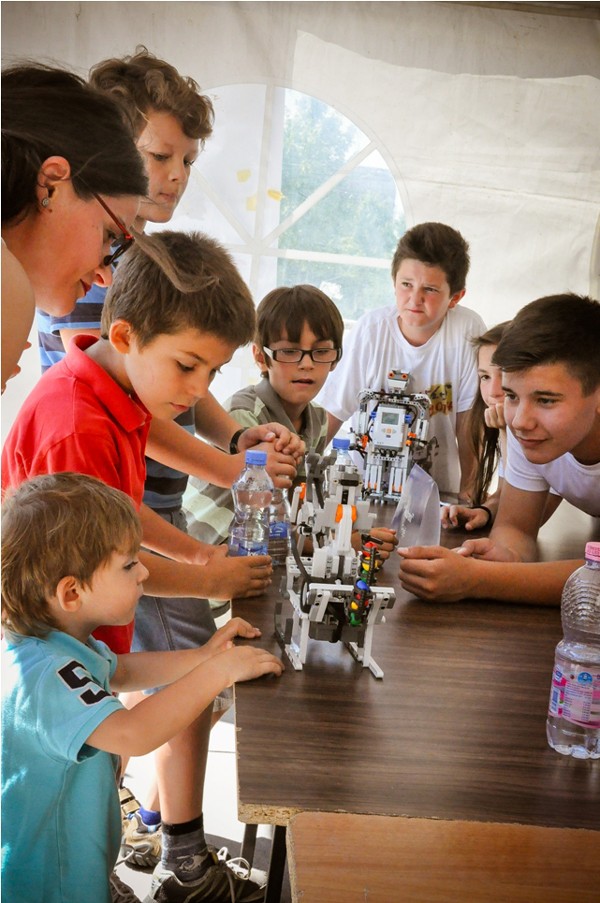
Jan. 2015—Over the past four years, USAID has made great strides inside Kosovo’s classrooms: overhauling school curriculums, helping teachers get access to the resources they need, and even inspiring community-led initiatives to renovate hundreds of classrooms around the country to create better learning environments. But the work that USAID has for students after school hours might just have the longest lasting effect in the fledgling democracy.
“We can teach theory all day long, but it’s putting that theory into practice that fuels creative thinking and new ideas,” explains Luljeta Rama, a teacher at the Eqrem Çabej Primary School in the northern city of Mitrovica.
With an average of 30 students per class and most schools working in two shifts, Kosovo’s teachers have limited time to go beyond theory with their students. Recognizing this, USAID, through its Basic Education Program, stepped in to launch a variety of extracurricular activities, like technology clubs, in over 70 primary schools to help reinforce what students are learning in the classroom.
The program has worked with municipal governments and local NGOs to bring textbook knowledge to life through competitions to challenge young learners in robotics, movie production and bookmaking.
Last year, the program’s annual robotics summer camp, RobotiKS, brought together 102 students from around Kosovo in grades 7 to 9 to sharpen their skills in robotics and electronics. Many took interest in robotics through their school’s technology club and found the camp a great way to meet other students who share their interests.
“I thought that my friend and I would be the only girls at RobitKS. It was a pleasant surprise to meet so many girls at camp who love technology as much as I do,” said 8th grader Eronita Jasiqi.
Through the annual Junior Oscars competition, Kosovo students put their technology skills and creativity to the test to produce 10-minute films in their free time. Forty-eight schools submitted films for this year’s competition, with prizes awarded for Best Documentary, Best Story, Best Film in English, and Best Animated Film.
“It was great working in a team to make our movie, and winning the prize made our work even more special,” explained 9th grader Alma Mustafa. “We felt like Hollywood movie stars!”
While many of the extracurricular programs have a strong technology component, some go back to basics, like a countrywide bookmaking competition to encourage literacy. The competition uses tenets of the program’s reading curriculum to challenge young readers to write their own stories, complete with illustrations and binding.
“Reading is my passion,” said 4th-grade bookmaking competitor Erbora Tupella. “I am especially happy to have won a prize in the Hand-Sewn Paperback Book category.”
The program’s focus on increasing student engagement through extracurricular activities has attracted attention from Kosovo’s most important education stakeholders—especially parents.
“I’ve seen a great improvement in my daughter’s outlook and grades, thanks to her involvement in the Junior Oscars competition,” said Rafet Tahiri. “These are the kind of practical skills that I know will prepare her to be a truly successful adult as well.”
USAID’s Basic Education Program is a five-year partnership between USAID and the Government of Kosovo that works with schools and communities to develop 21st century skills for children in primary school grades 1-9.
LINKS
Follow @USAIDKosovo. on Facebook, on YouTube







Comment
Make a general inquiry or suggest an improvement.